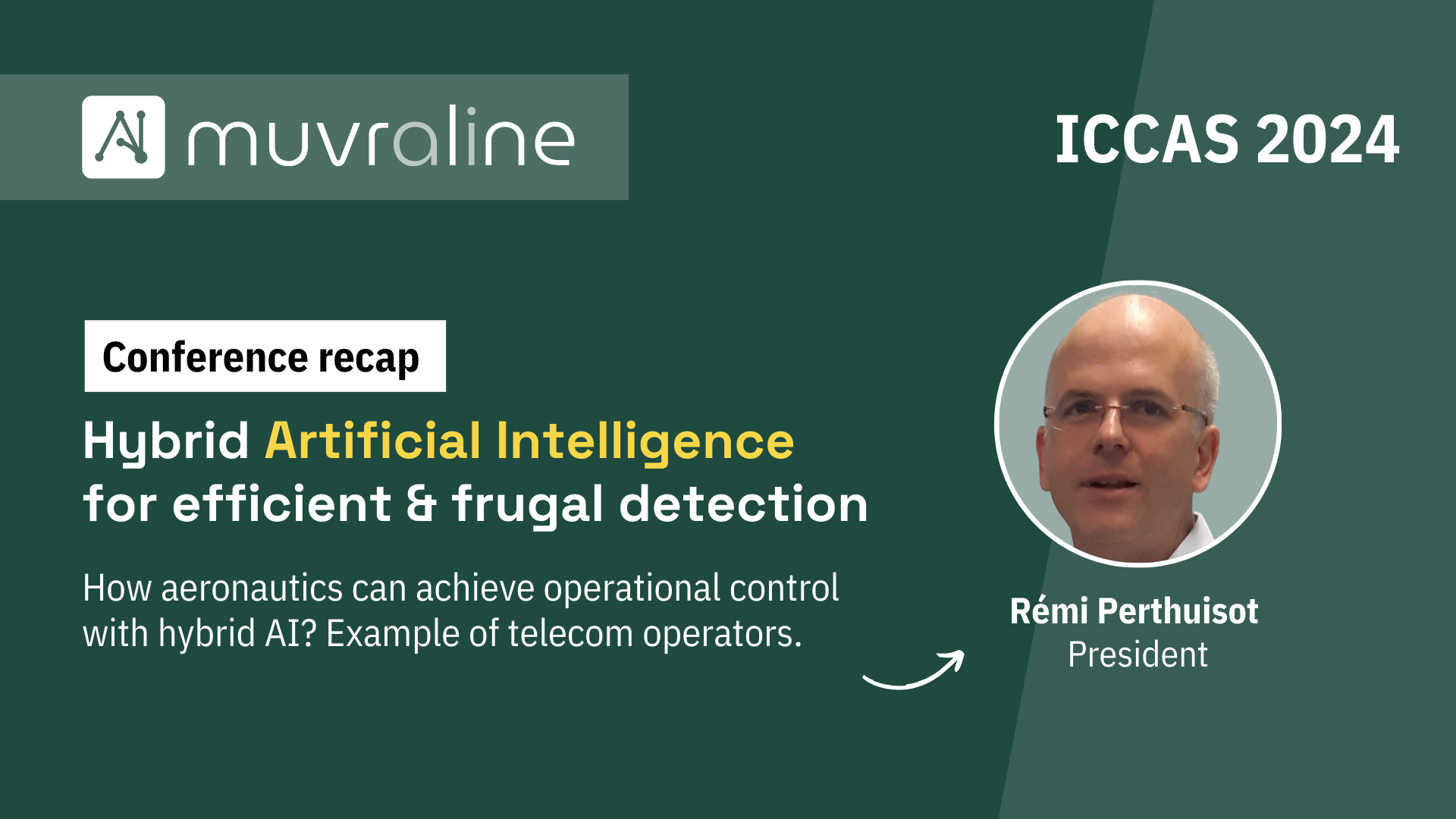Rémi Perthuisot, President of Muvraline, spoke on Thursday May 16 at ICCAS 2024, international scientific summit to discuss the evolution of the next generation of civil and military aeronautics.
The subject of his talk?
Hybrid Artificial Intelligence for efficient and frugal detection – or how aeronautics can achieve operational control with hybrid AI, with the example of telecom operators.
An opportunity to explain that at Muvraline, efficiency is essential to provide useful solutions to our customers. Frugality is also very important, for carbon footprint as well as cost & performance. This is why we try to hybrid all forms of AI to get useful, efficient and frugal software features.
Let’s take the example of telecom operators:
Each telcos provider owns FTTH cabinets, called “Point de Mutualisation Optique”, that are opened to the technicians of all the other providers.
Many rules had been defined to manage the operations in these cabinets. The issue is that there are thousands of cabinets, rules are not respected, and it is difficult for human experts to identify all the poor workmanships.
The goal is to identify the problems on a photo of FTTH armor.
Machine Learning can’t solve this problem, because photos are very complex (hundreds of subparts), and there are few photos, and even less tagged photos.
Our idea was to hybrid modal logic and Machine Learning. Modal logical can symbolize all the operational armor rules. In the evaluation of the predicates, Machine learning is used only to recognize subparts of the photos. Thus, training is very short, and frugal. And we have a complete explainability.
The result of the POC is that more than 95% of problem detected by human experts, are also detected by the AI. This process can be extended to all form of control of operation based on photo, video, voice or data, if these controls can be symbolized by logical modal predicates, or 1st order modal predicates.




